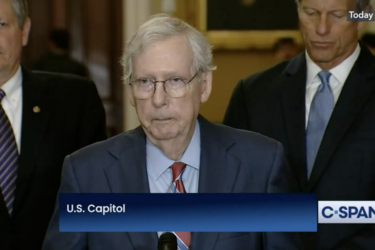
One in three Americans aged 50 to 64 are ashamed about the state of their teeth, and an even larger percentage (38 percent) say dental conditions have caused pain, difficulties with eating, missed work or interfered with their lives in other ways within the past two years.
The findings are part of a new report from the National Poll on Healthy Aging, a project led by the University of Michigan Institute for Healthcare Policy and Innovation and sponsored by the university’s health system and AARP.
About 60 percent of poll respondents reported they obtained regular preventive care as well as care for dental problems, the survey found. But another 40 percent said they sought care only occasionally or went to the dentist only for serious concerns.
The responses broke down along socioeconomic lines, researchers found. “Prevention-focused” patients were more likely to have private dental benefits, higher income, and a regular dentist than “problem-only” patients who delayed seeking services.
“For the majority of folks, cost was the main barrier to dental care,” lead researcher Erica Solway, a senior project manager at the University of Michigan Institute for Healthcare Policy and Innovation explained to Steve Reinberg who covered the findings in a HealthDay piece for CBS News.
Timely checkups and cleanings may be the best way to avoid serious tooth and gum problems, Solway told CBS. “Most dental problems can be prevented by getting regular preventive care,” she said. People without dental benefits are less likely make regular dental visits, and the survey found that 28 percent of participants reported having no dental coverage.
In a foreshadowing of future concerns, more than half (51 percent) of the middle-aged respondents said they did not know where they would get dental coverage after they retire.
Access to dental care often gets more difficult as people age, leaving behind the workforce and workplace benefits. Medicare, the federal program that provides health insurance to more than 55 million retired and disabled Americans has never included basic dental benefits. Meanwhile, Medicaid, which covers approximately 70 million poor Americans, treats adult dental benefits as optional and availability varies from state to state.
Loss of dental coverage after retirement can limit access to dental care, both for those who regularly received preventive dental services during their working years and those who tended to delay dental visits until needs were more urgent.
“Our findings highlight a stark divide among middle-aged Americans in terms of their oral health now and real uncertainty about how they will get and pay for care as they age,” Solway noted in a statement. “This is not out of disregard for the importance of preventive dental care — more than three-quarters of the people we polled agree that regular care is necessary to prevent problems later. It does highlight opportunities to improve access to care and insurance options after the age of 65.”
The survey included a nationally representative sample of 1,066 people aged 50 to 64 who answered a broad range of questions online. Laptops and internet access were provided to respondents who lacked computer access.
Research by the National Association of Dental Plans (NADP) indicates that an estimated 74 million Americans (including nearly half of Medicare beneficiaries) had no dental coverage in 2016 – four times the rate of Americans who were medically uninsured.
“Those over 65 may still have coverage through an employer, be able to purchase individual dental coverage or obtain dental coverage as a supplemental benefit through a Medicare Advantage plan,” the trade group said. “However, only 52.9 percent reported having dental coverage on the 2016 NADP consumer survey while virtually 100 percent of seniors have medical coverage under Medicare.”









